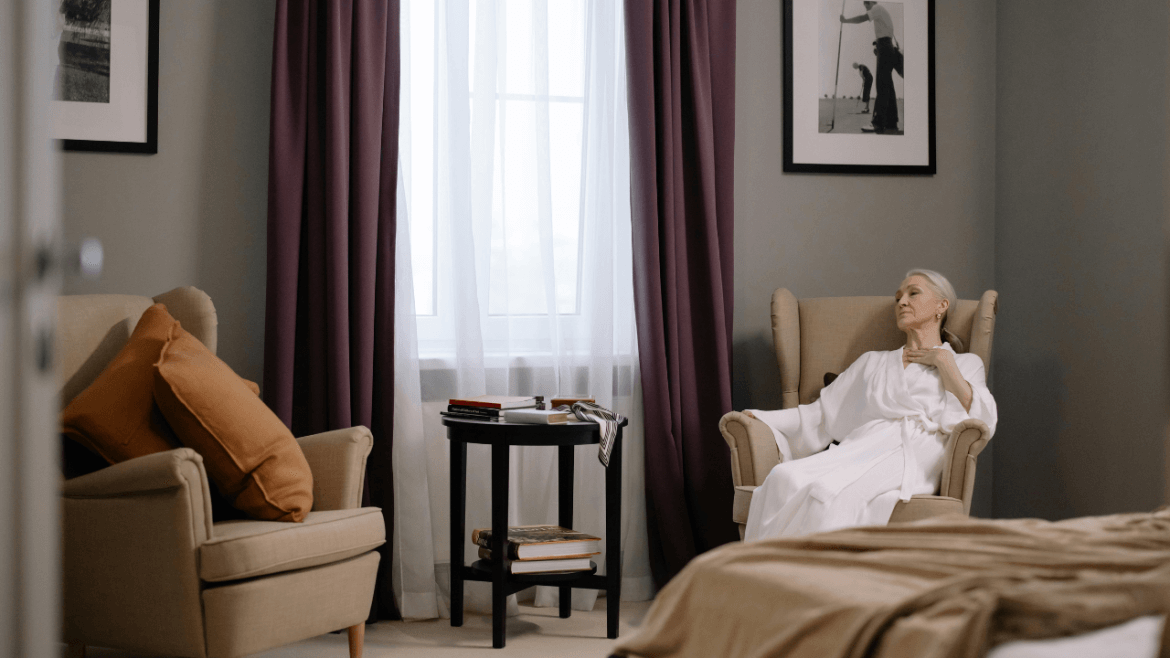Did you know that Leading Edge Senior Care has a Dementia Support Group? We meet monthly in Mesa. For more details <click here>
How To Care For Seniors With Psoriasis
Psoriasis is more than just a skin condition; it’s a chronic autoimmune disease that can profoundly impact a senior’s quality of life. The red, scaly patches and accompanying discomfort often require consistent care and thoughtful attention.
For seniors, managing psoriasis can be more challenging due to aging skin and the potential for other health issues. By understanding the condition and adopting the right approaches, caregivers can significantly improve the well-being of seniors living with psoriasis.
Understanding Psoriasis in Seniors
Psoriasis is a lifelong condition where the immune system mistakenly accelerates the production of skin cells. This results in the buildup of dead skin, forming patches that can itch, crack, and bleed. For seniors, aging skin becomes thinner and more sensitive, amplifying these symptoms. Additionally, seniors may face complications such as psoriatic arthritis, which causes joint pain and stiffness.
Seniors often experience heightened emotional challenges as well. Visible symptoms can lead to feelings of embarrassment or isolation, especially if psoriasis affects the face or hands. For caregivers, addressing these emotional struggles is as vital as managing the physical symptoms.
Importance of Moisturizing Aging Skin
One of the most crucial aspects of managing psoriasis is maintaining skin hydration. Dry skin can exacerbate symptoms, causing flare-ups to worsen. Seniors’ skin naturally loses moisture over time, making it even more prone to dryness. Caregivers should use gentle, fragrance-free moisturizers specifically designed for sensitive skin. Applying these products after bathing helps lock in moisture and soothe irritation. Ensuring that seniors stay hydrated by drinking adequate water also contributes to skin health.
Additionally, caregivers can encourage seniors to use humidifiers, especially during winter months when indoor air becomes dry. This simple step can prevent the skin from becoming excessively parched, reducing the risk of psoriasis flares.
Adopting a Gentle Skincare Routine
Harsh skincare products can irritate sensitive skin and worsen psoriasis symptoms. Seniors should use mild, soap-free cleansers that cleanse without stripping the skin of natural oils. Caregivers should ensure water used for bathing is lukewarm rather than hot, as hot water can further dry the skin.
After bathing, pat the skin dry gently instead of rubbing it with a towel. This minimizes irritation and helps preserve the skin’s barrier. In some cases, seniors may benefit from medicated shampoos or creams prescribed by a dermatologist to manage flare-ups in specific areas like the scalp.
Managing Triggers and Flares
Psoriasis is often triggered by factors such as stress, certain medications, or injuries to the skin. For seniors, other health conditions may contribute to flare-ups. Caregivers should keep a close eye on potential triggers, such as certain foods or activities that might cause stress. Encouraging seniors to engage in relaxation techniques, like deep breathing or gentle yoga, can help reduce stress levels and improve overall health.
Regular check-ups with a dermatologist are essential to tailor treatment plans based on the senior’s needs. Caregivers can assist by tracking symptoms and communicating any changes or concerns to healthcare providers.
Nutrition’s Role in Psoriasis Care
A balanced diet plays a significant role in managing psoriasis. Certain foods, such as those rich in omega-3 fatty acids, can help reduce inflammation. Seniors should consume fish like salmon or mackerel, along with leafy greens and fresh fruits. Avoiding processed foods and those high in sugar or unhealthy fats is equally important.
If necessary, caregivers can consult a dietitian to create meal plans that support skin health while addressing any dietary restrictions due to other medical conditions. Ensuring proper nutrition not only helps manage psoriasis but also enhances overall well-being.
Emotional Support and Social Connection
Living with a visible condition like psoriasis can be emotionally taxing for seniors. They may feel self-conscious or reluctant to participate in social activities. Caregivers should encourage open conversations about these feelings and reassure seniors that their worth is not tied to their condition.
Supporting seniors in joining support groups, whether in person or online, can provide them with a sense of community. Connecting with others who understand their struggles can alleviate feelings of isolation and foster a positive mindset.
Exploring Medical Treatments
For seniors with moderate to severe psoriasis, topical treatments may not suffice. Phototherapy, systemic medications, or biologic drugs might be recommended by a dermatologist. However, seniors need careful monitoring due to potential interactions with other medications they may be taking.
Caregivers should stay informed about the latest advancements in psoriasis treatment and discuss all options with healthcare professionals. Advocating for comprehensive care ensures that seniors receive the best possible treatment for their condition.
Building a Holistic Care Plan
Caring for seniors with psoriasis requires more than addressing physical symptoms. A holistic approach that includes skincare, nutrition, emotional support, and medical treatment can significantly enhance their quality of life. By fostering a compassionate and understanding environment, caregivers empower seniors to manage their condition with dignity and resilience.
Through consistent care and encouragement, seniors can navigate the challenges of psoriasis with confidence, knowing they are not alone. This journey may require patience, but the rewards of improved well-being and renewed self-esteem make every effort worthwhile.

